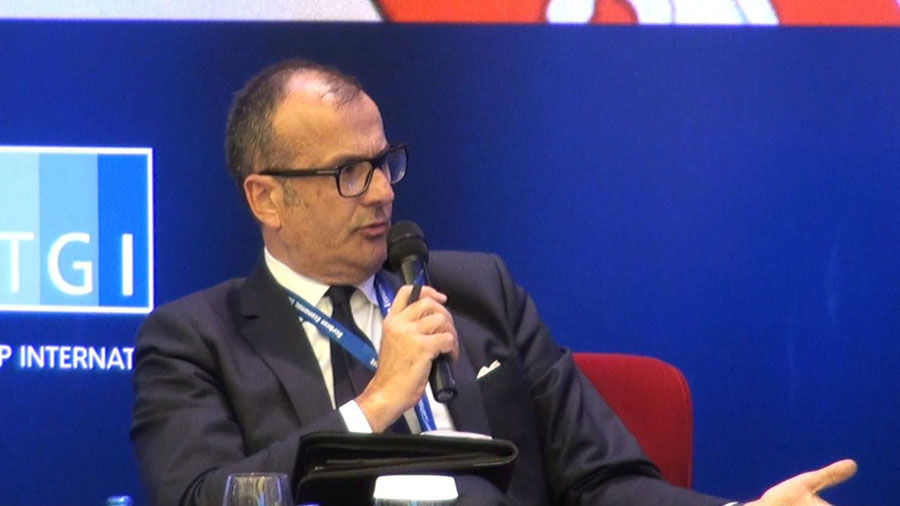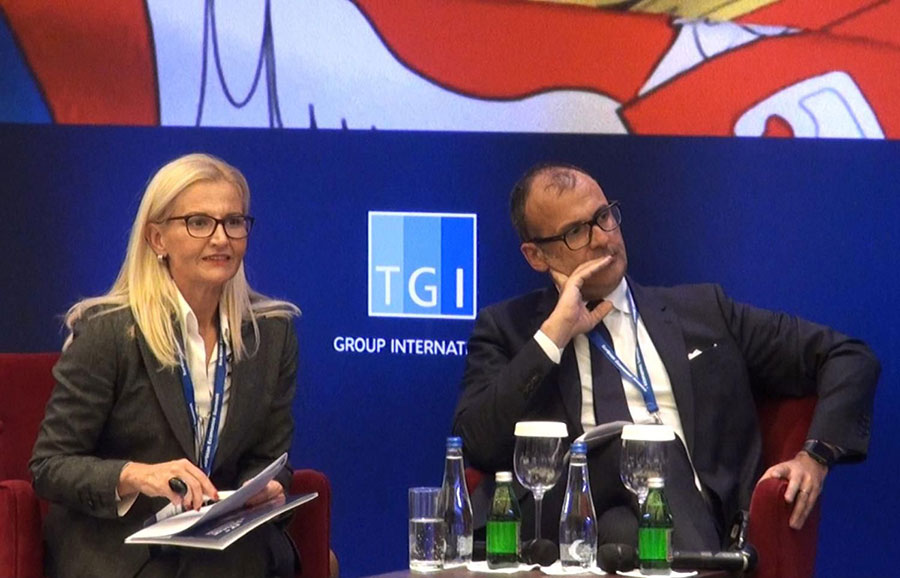Addressing the 17th Economic Summit of the Republic of Serbia, Head of the EU Delegation to Serbia Sem Fabrizi said that the most difficult issues should be dealt with right from the beginning of the negotiation process.
“Fundamentals first means that the most difficult issues are addressed from the outset of negotiations. Let’s deal with those right now,” Fabrizi said and as the most difficult cited the issues pertaining to chapter 35 – normalisation of relations with Pristina – as well as the rule of law in chapters 23 and 24.
There is no shortcut to the rule of law, he said and pointed to necessary steps such as making constitutional amendments.
“If you ask me whether you have done enough in the negotiating process, I will tell you: the more you get done, the closer you get to the end,” Fabrizi said.
He said that focus should be put on the reform, not the timeframe.
According to him, Serbian authorities are aware that economic interest is tightly linked to Serbia’s progress on the EU path.
“This is the process we, as partners, are going through. Making Serbia and the Western Balkans part of the EU is also in our own interest. We think of it as unfinished business and we have to integrate this region with the Union,” he said.

FoNet
Head of the negotiating team for the accession of Serbia to the EU Tanja Miscevic said she was not happy with the negotiation dynamics, but was encouraged by EU’s announcement about the possible speeding up of the process in 2018.
She recalled that Serbia had so far opened 10 and provisionally closed 2 chapters.
“If you ask me whether I am happy with the pace, the answer is – no, I am not. Having in mind that we have started the talks four years ago, I don’t dare imagine who long it will take us to conclude them at the current pace,” she said.
However, she finds “2025 perspective, put forward a month ago by European Commission President Jean-Claude Juncker when he announced a strategy that would speed up the accession process of the Western Balkans countries, which should be adopted in February 2018” encouraging.
Miscevic said that Serbia should jump at the opportunity offered by the “Balkan presidency” that is Bulgarian presidency of the European Union in order not to squander a good chance.
If we fail to seize that momentum, we will truly lose a chance to keep pace with the EU and a chance to realize our potential in the region. Now is the moment to show that potential, Miscevic said.
Bulgarian Ambassador in Belgrade Radko Vlajkov drew a parallel between Serbia and Bulgaria’s EU accession processes and noted that our eastern neighbour had concluded the EU talks with tremendous support from citizens, with more than 75 per cent of them being in favour of membership. Serbian citizens, on the other hand, do not appear utterly convinced of the benefits of membership.
We must therefore support Serbia’s EU path and warn it not to make the same mistakes, not only by offering our political support, but also by sharing our experience, Vlajkov said, noting that Serbia will know how to use the most of Bulgaria’s political support.
In a couple of months, when Bulgaria takes over the presidency, we want to assure our EU partners that enlargement to the Western Balkans should again be put high on our agenda, he said.
Germany and Italy seem optimistic as regards Serbia’s European integration, said the two ambassadors, Axel Dittmann and Giuseppe Manzo, whereas Greece’s ex-Foreign Minister Dora Bakoyannis said she was convinced that Serbia would have the will to meet all accession requirements by 2025.




